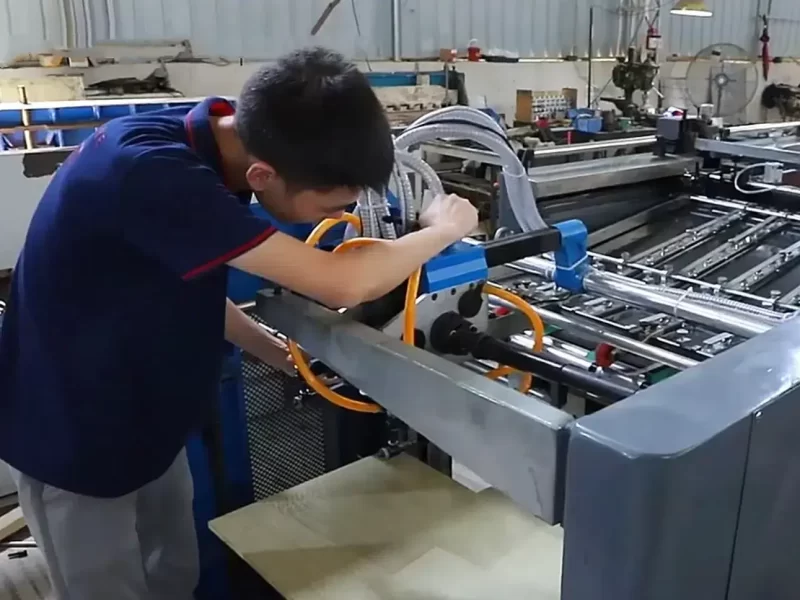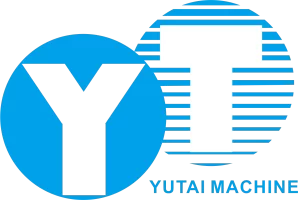
セラミックス製造工程では、製造工程における セラミックス機械 は、製品の品質や生産効率に影響を与えます。このガイドでは、長期的かつ効率的な操業を確保し、ダウンタイムとメンテナンスコストを削減するために、陶磁器食器機械の日常的なメンテナンス方法を詳しく説明し、ユーザーの生産効率の向上と製品品質の確保を支援します。
清掃と衛生管理
毎日の作業後、機械の表面に付着したほこりや不純物は、特にほこりがたまりやすい場所で取り除く必要がある。同時に、摩耗や摩擦を減らすため、機械の主要部分には定期的に注油する。機器の表面を傷つけないよう、中性洗剤と柔らかい布の使用を推奨する。装置の金属部分の腐食を防ぐため、酸性やアルカリ性の強い洗剤の使用は避けてください。
機械部品検査
主要コンポーネントには、モーター、ドライブベルト、ベアリング、ギア、油圧システムなどが含まれる。各シフトの開始前に簡単な点検を行い、少なくとも月に1回は総合的な点検を行う。摩耗した部品、緩んだ部品、損傷した部品がないか注意し、潤滑油を適時追加する。
成形金型やコンベアベルトの位置など、機械の主要な構成部品を定期的に校正し、機械が最良の状態で作動するようにする。
メンテナンス時の安全注意事項
- 機械を正しく始動、運転、停止させるために、メーカーから提供された取扱説明書に従ってください。過負荷は厳禁であり、装置の頻繁な始動と停止は避けてください。
- メンテナンスや修理の前に、装置の電源が完全にオフになっていることを確認してください。
- 作業中の怪我を防ぐため、作業者は手袋、ゴーグル、保護靴などの適切な保護具を着用すること。
- 無許可の修理は避けてください。不適切な操作による装置の損傷や人身事故を避けるため、装置の修理および調整は、訓練を受けた専門家のみが行えます。
よくある問題と解決策
マシンの動作不良:装置の運転状態が悪かったり、異常な音がしたりする場合は、潤滑システムやトランスミッションの部品が摩耗していないか点検し、必要に応じて部品の注油や交換を行う必要があります。
送電システムの問題:トランスミッションベルトの滑りや破損は、よくある問題です。トランスミッションベルトの張りを定期的に点検し、緩みや損傷が見つかった場合は直ちに調整または交換してください。
電子制御システムの故障:電子制御システムの故障により、装置が始動しない、あるいは正常に作動しないことがあります。電気接続とセンサーの状態を定期的にチェックし、線が緩んだり切れたりしていないことを確認してください。
メンテナンス記録と定期的な見直し
メンテナンス計画を立て、年/四半期/月単位で詳細なメンテナンス・スケジュールを立てる。
メンテナンス・ログには、以下を含める:
- メンテナンス時間と内容各点検、清掃、潤滑、調整、交換の具体的な時間と作業内容を記録する。
- 設備状況機器の稼動状況や発見された問題を記録し、フォローアップに役立てる。
- メンテナンス計画の定期的な見直しと最適化:メンテナンス記録を定期的に見直し、設備の故障率やよくある問題を分析し、メンテナンス計画を最適化する。
スペアパーツ管理
スペアパーツリスト:消耗部品やその他の重要部品のリスト。
在庫管理の提案スペアパーツの在庫を合理的に計画し、緊急時に迅速に交換できるようにする。
調達ルート:スペアパーツの品質を確保するため、評判の良いサプライヤーを選ぶ。
結論
定期的なメンテナンスは、セラミックス機械の耐用年数の延長に役立つだけでなく、生産効率を向上させ、装置の故障によるダウンタイムを短縮します。定期的なメンテナンス、適切な操作訓練、詳細な記録は、装置の長期的で安定した運転に確かな保証を提供します。このガイドに従うことで、ユーザーはセラミック機械を常に最良の状態に保つことができ、企業に高い経済的利益をもたらすことができます。
セラミックマシンの詳細については、お問い合わせください。として 最高のセラミック機械メーカー 中国で ユタイ ワンストップのカスタマイズされたソリューションと技術サポートサービスを提供し、各段階のための包括的なセラミック機械シリーズで、効率的かつ高品質のソリューションをお客様に提供します。
